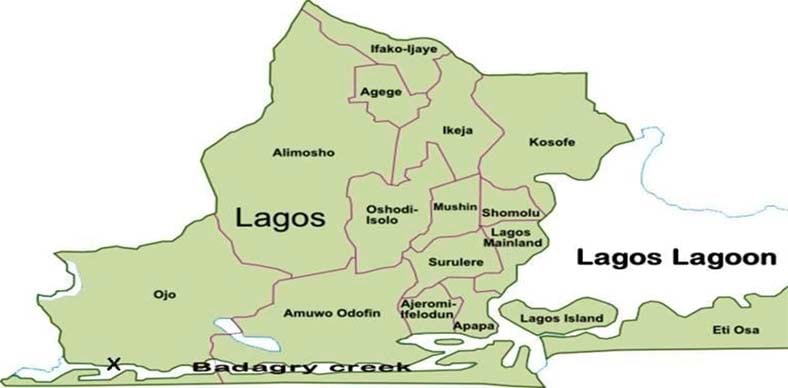Lagos, Nigeria’s bustling megacity, grapples with a severe housing crisis, with over 60% of its residents forced into informal settlements characterized by substandard living conditions. These settlements, often lacking basic amenities and infrastructure, underscore the widening disparity between the city’s burgeoning population and the availability of affordable housing. Areas like Makoko and Ajegunle stand as stark reminders of this challenge, highlighting the urgent need for comprehensive urban renewal initiatives and the development of inclusive housing solutions that cater to the needs of all residents, regardless of income level. The state government has recognized the gravity of this situation and has embarked on several land reforms aimed at improving access to secure land tenure and promoting transparency within the land administration system.
Central to these reforms is the implementation of digital tools, including the Electronic Certificate of Occupancy and the Lagos State Geographic Information System (LASGIGIS). These initiatives aim to streamline the process of obtaining legal land titles, reducing bureaucratic delays and minimizing the potential for corruption. Furthermore, the Land Regularisation Programme seeks to provide a pathway for informal landholders to secure legal ownership, thereby contributing to greater stability and security within the land market. These digitization efforts and regulatory reforms have significantly improved land documentation and bolstered investor confidence in Lagos’s real estate sector. These measures, coupled with the existing federal Land Use Act, demonstrate a concerted effort to modernize land governance, strengthen property rights, and foster sustainable urban development within the state.
To further address the housing deficit, the Lagos State Government has increasingly embraced Public-Private Partnerships (PPPs) as a key strategy for delivering affordable and high-quality housing. This collaborative approach leverages the strengths of both the public and private sectors, with the government providing land and regulatory support, while private developers contribute capital, technical expertise, and construction capacity. The Ilubirin Estate, a mixed-use development on reclaimed land in Ikoyi, exemplifies this PPP model, offering a diverse range of residential, commercial, and leisure spaces designed to cater to a variety of income levels.
Other notable PPP projects include the Housing Estate Development at Igbogbo, Ikorodu, and the Greenwich Gardens Housing Estate in the Agboyi-Ketu Local Council Development Area – the first residential housing estate in Nigeria developed under a PPP arrangement involving a local authority. These initiatives underscore the state government’s commitment to bridging the housing gap by fostering partnerships that combine public oversight with private sector efficiency. The success of these projects demonstrates the potential of PPPs to deliver impactful housing solutions and contribute to the overall improvement of living conditions for Lagos residents.
Beyond housing development, Lagos State has also embarked on various urban renewal initiatives aimed at revitalizing blighted areas, upgrading infrastructure, and enhancing the quality of life for its citizens. These efforts, often spearheaded by the Lagos State Urban Renewal Agency (LASURA), focus on transforming slums into livable communities and implementing improvements to essential urban infrastructure. The redevelopment of the Isale-Gangan area on Lagos Island serves as a prime example of community-driven urban renewal, where thirteen families collectively relinquished their properties to facilitate the construction of a modern residential apartment complex. This collaborative approach highlights the potential for community involvement in driving positive urban transformation.
Furthermore, ambitious projects like Gracefield Island, a planned cosmopolitan city being developed on reclaimed land in the Lagos Lagoon, showcase the state’s vision for sustainable and inclusive urban development. Designed to accommodate up to 25,000 residents, Gracefield Island incorporates green infrastructure, dedicated cycle lanes, and public charging points for electric vehicles, reflecting a forward-thinking approach to urban planning. These initiatives, alongside ongoing efforts to address the housing deficit and improve land governance, demonstrate Lagos State’s commitment to creating sustainable, vibrant, and economically inclusive communities for its residents. The continued collaboration between public and private entities is crucial for the successful implementation of these long-term urban development goals.
The findings and insights presented in this summary are derived from the State of Lagos Housing Market, Volume 3, a report published by the Roland Igbinoba Real Foundation for Housing and Urban Development. This report, the third in a series, provides a comprehensive analysis of the housing market in Lagos, highlighting challenges, opportunities, and key policy initiatives. The previous editions of the report were published in 2009 and 2016, providing valuable longitudinal data and insights into the evolving dynamics of the housing sector in Lagos. The report serves as a crucial resource for policymakers, developers, researchers, and other stakeholders involved in addressing the complex housing challenges facing Lagos and contributing to the development of sustainable and inclusive urban solutions.


